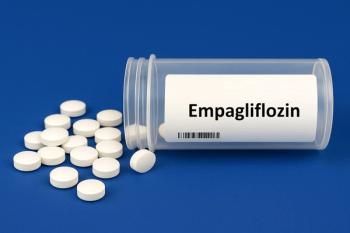
Rinvoq’s Effectiveness in Treating Crohn’s, Ulcerative Colitis Shown in Studies
New research illustrates the efficacy of upadacitinib for treating Crohn's and ulcerative colitis.
Rinvoq (upadacitinib, AbbVie) was effective in treating Crohn’s disease and ulcerative colitis, according to recent research.
AbbVie executives presented the study results at the
More Crohn's disease patients treated with either dose of upadacitinib (15 mg or 30 mg once daily) achieved the co-primary endpoints of endoscopic response and clinical remission, as well as the secondary endpoint of endoscopic remission, at one year compared to placebo in AbbVie’s U-ENDURE Phase 3 maintenance study.
The study evaluated upadacitinib in adult patients with moderate to severe Crohn's disease who had an inadequate response or were intolerant to a conventional or biologic therapy, AbbVie said in a news release.1
Nearly half (49%) of patients treated with a 12-week induction regimen of upadacitinib 45 mg daily achieved clinical remission per at week 12 compared to placebo (29%). In addition, a significant 46% of patients treated with upadacitinib 45 mg achieved endoscopic response at week 12 compared to the placebo group (12%).
Notably, steroid-free clinical remission was achieved at week 52 among all patients and those on steroids at entry in maintenance, Edward V. Loftus, Jr., MD, gastroenterologist at Mayo Clinic College of Medicine and Science, told ACG attendees.2
In addition, no new safety risks observed compared to the known safety profile of upadacitinib.
Although Rinvoq is not yet approved by the FDA to treat Crohn's disease, AbbVie will use results from the U-ENDURE maintenance study — as well as other medical trials — in future regulatory submissions.
Upadacitinib was also effective in treating ulcerative colitis patients at a low maintenance dose of 30 mg or 15 mg for those with less severe disease, said Brian Feagan, MD, gastroenterologist at the Division of Gastroenterology at Western University, in London, Ontario, Canada, at the ACG meeting.3
Feagan and the research team found that clinical remission was sustained in at least 64% of patients over one year of maintenance treatment with upadacitinib 30 mg.
In patients under 65 ears old, 26% more patients in the upadacitinib 30 mg group were in a less severe disease state versus the upadacitinib 15 mg group at Week 52 and those treated with 30 mg were in clinical remission for an additional 4.2 weeks over one year of maintenance compared with those treated with 15 mg.
“This study demonstrates the important clinical benefit of high dose upadacitinib as maintenance treatment in ulcerative colitis, especially among patients younger than 65 years,” Feagan said.
References
1. Upadacitinib (RINVOQ) met the primary and all secondary endpoints in the 52-Week phase 3 maintenance study in ulcerative colitis patients. News release. AbbVie. May 11, 2022. Accessed November 14, 2022.
2. Loftus, E. Efficacy and safety of upadacitinib maintenance therapy in patients with moderately to severely active Crohn’s Disease: Results from a randomized phase 3 U-ENDURE maintenance study. Poster Presentation, ORAL 44. American College of Gastroenterolgy’s Annual Scientific Meeting. October 21-26, 2022. Charlotte, NC.
3. Feagan, B. Benefits of high versus low dose upadacitinib as maintenance treatment in ulcerative colitis patients who were responders to 8-week induction with upadacitinib: Results from the U-ACHIEVE phase 3 maintenance trial. Poster Presentation, Oral 1. American College of Gastroenterolgy’s Annual Scientific Meeting. October 21-26, 2022. Charlotte, NC.
Newsletter
Pharmacy practice is always changing. Stay ahead of the curve with the Drug Topics newsletter and get the latest drug information, industry trends, and patient care tips.























